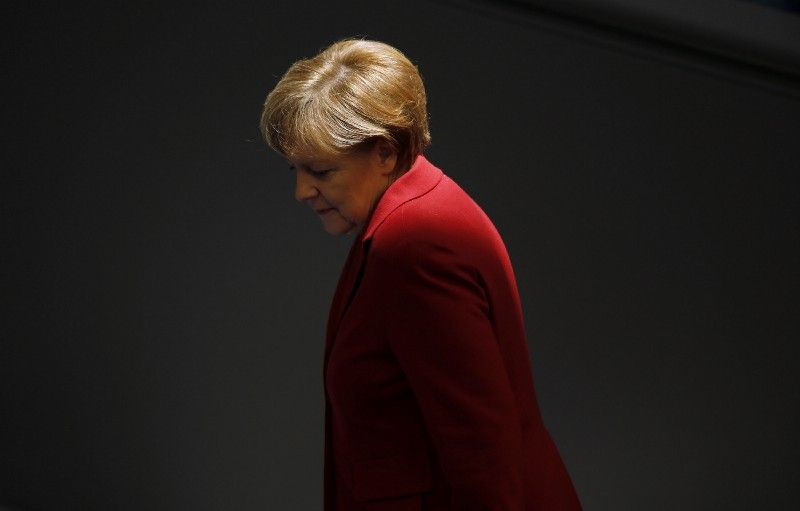June 27, 2018
Are we heading for a post-Merkel era in Europe? The indefatigable German chancellor heads to Brussels for a summit of European leaders tomorrow with an immigration ultimatum hanging over her head that could spell the end of her 13-year tenure. Here’s Gabe with the details…
Merkel’s challenge: Merkel faces mounting pressure at home to strike a deal to prevent migrants from taking advantage of the EU’s policy of open internal borders to seek refuge in the continent’s wealthier countries. But those on the front line of the crisis, most notably Italy, want no part in taking on additional migrants — preferring to either pass them off to others or close their external borders altogether. So Merkel will attempt a delicate balancing act: promoting measures to secure the EU’s external border in an effort to stem the migrant tide while sticking to her guns on the bloc’s policy of open internal borders.
But will it be enough? Over the past 24 hours, Merkel’s internal party challengers have dialed back an earlier promise to institute border controls unless a comprehensive agreement is reached in Brussels. But if Merkel returns to Berlin empty handed ahead of a crucial meeting next Monday with her Interior Minister Horst Seehofer, they could opt to put that threat back on the table, reasoning the consequences of backing down to be too politically costly. Merkel would then face the tough choice of whether to fire Seehofer — a move that could bring down her government — or possibly tarnish her legacy by shutting Germany’s borders.
What if she fails? A collapse in Merkel’s already tenuous coalition would usher in a new period of political uncertainty in Europe’s largest economy. While Merkel could attempt to form a new government with the support of the left-leaning Green party, a more likely scenario is a succession struggle between her chosen successor, Annegret Kramp-Karrenbauer, and more conservative members of her party.
What does it mean for Europe? Such a collapse couldn’t come at a worse time for a Europe that confronts anti-immigrant governments in Italy, Austria, and Eastern Europe, a deeply dysfunctional Brexit process, and a stalled reform agenda. A more conservative government in Berlin could ultimately follow through with border controls, dealing a final blow to one of Europe’s core principles, the free movement of people.
While Chancellor Merkel has a black belt in Stayin’ Alive, this is the biggest test she’s faced yet.
More For You
In this episode of Tools and Weapons, Microsoft Vice Chair and President Brad Smith sits down with Ed Policy, President and CEO of the Green Bay Packers, to discuss how purpose-driven leadership and innovation are shaping the future of one of the world’s most iconic sports franchises. Ed shares how technology and community-focused initiatives, from Titletown Tech to health and safety innovations on the field, are transforming not just the game of football, but the economy and culture of Green Bay itself. He explains how combining strategic vision with investment in local startups is keeping talent in the Midwest and creating opportunities that extend far beyond Lambeau Field.
Subscribe and find new episodes monthly, wherever you listen to podcasts.
Most Popular
Egyptians head to the polls to elect a new parliament during the first round of the Egyptian parliamentary elections in Giza, Egypt, on November 10, 2025.
Photo by Islam Safwat/NurPhoto
Egyptians are voting this month in parliamentary elections that aren’t expected to change who’s in charge, but could allow President Abdel Fattah el-Sisi to rule beyond 2030.
An injured soldier is transferred to a hospital following a clash between Thai and Cambodian troops over a disputed border area in Sisaket Province,Thailand, December 7, 2025.
Royal Thai Army/Handout via REUTERS
Thailand and Cambodia’s ceasefire is on the verge of collapse. Strikes were launched across their disputed border today, following clashes over the weekend that resulted in the death of a Thai soldier.
© 2025 GZERO Media. All Rights Reserved | A Eurasia Group media company.
